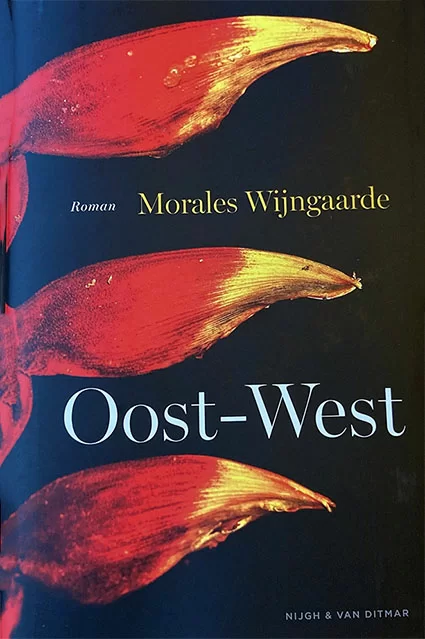On the eve of the 50th anniversary of Srefidensi, Professor Guno Jones, holder of the Anton de Kom Chair, received the first copy of the novel ‘Oost-West’ by Morales Wijngaarde (1961–1992) in Amsterdam. The book launch, held in a packed venue, was attended by notable figures including Ernestine Comvalius, Henry Does, Raoul de Jong, Ricardo Wijngaarde, Caroline Mulder, and Noraly Beyer. The novel narrates the love story between two young individuals during the early years of the Republic of Suriname. At a university party, Marius, a politically conscious Afro-Surinamese student raised in the multicultural environment of Paramaribo, meets Chandra, a teacher training student from a traditional Hindu background in the rice district of Nickerie. Their relationship faces resistance due to cultural differences. Noraly Beyer, in her review on the book’s back cover, praised the novel for its precise depiction of daily life in Suriname, drawing parallels to the famous 1976 Surinamese film ‘Wan Pipel’. She highlighted the grim backdrop of the 1980s military dictatorship, which she personally recognized. Morales Wijngaarde, a sociology graduate from the Anton de Kom University of Suriname, was a student leader and editor of the leftist weekly ‘Mokro’. He left Suriname after the December Murders, during which ‘Mokro’ founder Bram Behr was killed and the publication was banned. Wijngaarde continued his work as a journalist and writer in exile in Amsterdam until his death. ‘Oost-West’ was published by Nijgh & Van Ditmar, the same publisher that released works by Albert Helman. Raoul de Jong wrote the foreword, and Henry Does provided the introduction. The author dedicated the novel to Bram Behr, stating, ‘For Bram. They destroyed your fragile body, but they could not tame your restless spirit.’
